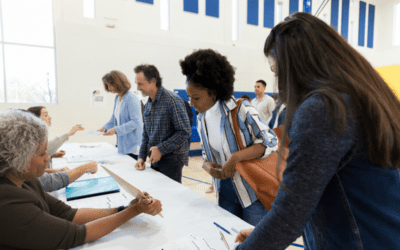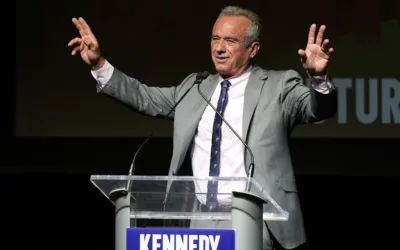Evidence presented during Tuesday’s House committee hearing on the Jan. 6 Capitol attack contradicts Team Trump’s argument that the insurrection was spontaneous and that Trump cannot be blamed for his supporters’ actions.
Former President Donald Trump planned to direct a mob of angry, armed supporters to the US Capitol on Jan. 6, but wanted it to appear spontaneous, according to new testimony revealed during Tuesday’s House hearing on the Capitol attack.
According to documents from the National Archives, Trump drafted a tweet prior to Jan. 6 that read: “I will be making a Big Speech at 10AM on January 6th at the Ellipse (South of the White House). Please arrive early, massive crowds expected. March to the Capitol after. Stop the Steal!!”
Trump never sent the undated tweet, but according to text messages and emails obtained by the committee, numerous Trump allies—including former Trump spokeswoman Katrina Pierson and Stop the Steal organizers Ali Alexander and Kylie Jane Kremer—also knew that the president planned to direct the crowd to the Capitol.


This evidence contradicts Team Trump’s argument that the Capitol attack was spontaneous and that Trump cannot be blamed for his supporters’ actions.
Here’s what else we learned on Tuesday:
1. Trump’s supporters responded to his rally announcement with violent rhetoric
Following his failures to challenge the 2020 election results through legal means, Trump issued a tweet on Dec. 19, 2020, ordering his supporters to come to Washington on Jan. 6, 2021, to “Stop the Steal,” saying it “will be wild.” Within 24 hours, right-wing media figures like Alex Jones and Tim Pool began amplifying Trump’s tweet, and Trump supporters began posting violent and racist content online, expressing excitement about attending the Jan. 6 rally and storming the Capitol. One user even called for a “red wedding,” a reference to a scene of mass murder in Game of Thrones.
2. Extremist groups were ready to use violence to help Trump
On Tuesday, the committee heard evidence that the extremist groups the Proud Boys, the Oath Keepers, and the 3%ers began coordinating for the first time immediately following Pres. Trump’s “will be wild tweet.” These groups were also in regular communication with Trump allies Roger Stone and Michael Flynn.
Testimony also revealed that the Oath Keepers, an extremist right-wing militia, were prepared to use violent force to keep Trump in office. As former Oath Keepers member Jason Van Tatenhove testified, the group is a “dangerous militia” that attracts “white nationalists” and “straight-up racists” and has a vision for America that “includes violence” and “doesn’t necessarily include the rule of law.”
3. Trump’s former campaign manager blamed Trump for Jan. 6 violence
In text messages, Trump’s former campaign manager Brad Parscale laid the blame for the violence and deaths that occured on Jan. 6 at Trump’s feet, saying Trump’s rhetoric was responsible for supporter Ashli Babbitt’s death.
4. Trump may have engaged in witness tampering since the last hearing
After the committee’s last hearing, Trump himself allegedly phoned a witness that has yet to be introduced to testify publicly. That person didn’t answer Trump’s call and instead alerted their lawyer, who alerted the committee. Rep. Liz Cheney (R-Wyoming) warned against possible witness intimidation and announced that this information had been supplied to the Department of Justice.
Ultimately, the committee and its witnesses presented a strong case that Trump and some of his allies knowingly spread lies about the 2020 election being stolen, whipped Trump supporters into a violent frenzy, encouraged them to come to Washington, D.C., on Jan. 6, used the threat of violence by armed extremists to try to pressure Vice President Mike Pence and members of Congress to overturn the election results, and then directed the armed mob to march on the US Capitol.

This billionaire’s PAC is spreading a big lie about Tammy Baldwin, Medicare, and taxpayer savings
Restoration PAC, funded by Uline’s Richard Uihlein, twists the significance of forcing Big Pharma to negotiate for lower bulk pricing on Medicare...

New Biden rules deliver automatic cash refunds for canceled flights, ban surprise fees
In the aftermath of a canceled or delayed flight, there’s nothing less appealing than spending hours on the phone waiting to speak with an airline...

Opinion: It’s time for Congress to fight for small businesses instead of big corporations
May is National Small Business Month. Our elected leaders need to show leadership all year long. For the past 27 years I’ve been fortunate to pursue...

Biden makes 4 million more workers eligible for overtime pay
The Biden administration announced a new rule Tuesday to expand overtime pay for around 4 million lower-paid salaried employees nationwide. The...




